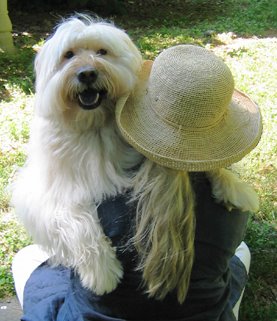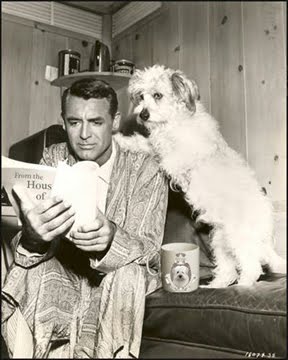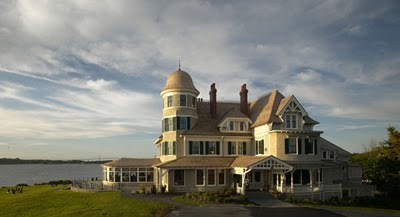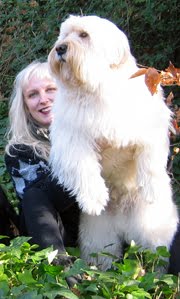Chapter I
III
Up and Over
Two hours later, Albert stood at his upstairs window and watched Gwendolyn negotiate the puddles along the pavement outside as she made her way to the waiting taxi. It had been an enjoyable lunch but he was weary of steering the conversation to subjects that had nothing to do with her writing. He did it well, it was true. It was his go-to trick in any ticklish situation; keep the flow of conversation twisting and turning like a rushing river, all the while carefully avoiding the obstacles lurking just beneath the surface. It had served him admirably for years and he had no guilt whatsoever about employing it whenever needed. Besides, in this situation he was certain his plan to get Gwendolyn writing again was pure genius. Once she got out to the island all would be resolved. His plan was flawless. It was carefully crafted; he had thought of everything and hired the very best, at no small expense to himself. Now all he had to do was sit back and wait for the results. He was cognizant of the fact her interest in her lucrative genre was waning, but he’d negotiated a substantial advance for this next book, an advance that had, for his part, mostly been spent, and he was in no mind to deal with the consequences of a default. Nothing less than death would release Millicent Penfield from this contract. Let her finish this book and they’d discuss a break later. Perhaps. If he was right, it could very well be that dear Millicent would return from her stay at Greyrocks with a quiver full of new ideas, ideas that just might keep them both in clover for many more years to come. Of course, if it went wrong, Gwendolyn Sharp might never speak to him again. But when was he ever wrong?
Mrs. Dunn entered the room behind him and began to clear away the detritus of the elaborate lunch. “She took the tickets then?”, she asked. He could feel her frowning, her rapier gaze burning onto his back.
“Yes, Caroline. It’s all set. I know you don’t approve, but it’ll work. Just wait and see. Just trust me, won’t you?”
“I do not approve of your methods, Mr. Pepperidge.” The glasses rattled as she placed them rather roughly on a tray and turned to leave.
Albert folded his arms across his belly in a protective stance and continued staring out the window, not wanting to meet her confrontational eyes. “Trust me”, he whispered, almost to himself. “Just trust me.”
***
Whether from wine or weariness, Gwendolyn slept like a baby that night. Her initial reticence over Albert’s offer - or was it a demand? - that she get away to his place up north had softened and she found herself rather looking forward to it. Between glances at the photo of the house on the train ride back she’d convinced herself it was just what she needed. And as she got closer and closer to home, the sun got brighter and the traffic got heavier so by the time she pulled up to her cottage on the hillside, she was practically giddy at the thought of getting away. She’d get this last book written, it’d make her a packet, and then she could settle down to write only what she wanted for the rest of her days. All in all, a good plan. Good old Albert, he always came through for her.
So 8:00 that morning found her standing on the platform at St. Ives Station waiting on the train. It was a twelve hour journey with three changes, but she didn’t mind. She loved to travel by train. She’d brought along her knitting, a bit fat book on Elizabethan textiles, the latest copy of the LRB, a thermos of Darjeeling and a flask of Glenmorangie. She was set.
Jostled by another incoming trainload of tourists, she made her way down the platform to her train. She found an empty seat by a window in the quiet car, and put on her sunglasses, waiting for the doors to close and her adventure to begin.
***
As the miles stretched further and further away from home, Gwendolyn found the ever-changing scene outside her window such a distraction that eventually, having read the same sentence over four times without retention, she closed her book to watch. The view, like a moving painting of greens and golds, altered and revised by an unseen artist with every hour that passed - its color palette deepening, its light darkening - signaled a distinct shift from the usual. She felt a bit nervous. She’d always preferred careful plotting and planning to spontaneity or caprice. This journey was unlike her, she knew. She didn’t even know the name of the island to which she was heading. But as Albert had said, and he knew her better than almost anyone, she needed to shake things up a bit if she was to climb out of the writing rut she was in and for this last book - and it was the last, whether he knew it or not - she was willing to try just about anything to get it done and bid farewell once and for all to the profitable but pestering Millicent Penfield.
The windows were black and slashed with horizontal lines of silver when the train glided into its final stop. The last passenger left, Gwendolyn pressed her forehead to the cold glass, trying to get a better look outside through the pouring rain. One tiny station sat crouched against a lacy iron fence which appeared to be the only fragile bulwark preventing it from blowing off the hillside and into the sea. The wind sounded alive. She swallowed hard, picked up her bags and pulled the hood of her coat up tight.
Her bags nearly blew out of her hands when the door to the train opened. The wind took her breath away and blew the rain straight into her face. Squinting through the darkness she saw a pair of car lights flash once in the distance and began to head in that direction, head down. Over the wail of the wind she heard a car door slam and saw the shadow of an approaching figure, bent double against the force of the wind.
“Miss Penfield?”. The voice sounded far away even though only ten feet separated them.
“No I’m.. I mean, um… yes!”, she bellowed back. So this was part of Albert’s strategy, was it? Gwendolyn Sharp was still back at her sunny cottage and she was to be Millicent Penfield whilst here. Some sort of psychological trick to get her in the proper mindset for the new book. A few seconds irritation, then she decided to play along. What could it hurt?
The man reached her and bent for her cases. “You must be Henry”, she said.
“Aye, that I am, Miss. Car’s over here. We need to step it up or we won’t make it across tonight. Weather’s getting worse.”
Gwendolyn followed close behind him as they fought the wind to a battered truck sitting alone in the car park. “You can’t mean we’re crossing the water in this?”, she yelled. No answer from Henry.
He threw her cases in the front seat and motioned for her to climb in beside them. It was a tight squeeze but she managed it. The wind was muffled by the closing of the doors but its effects could still clearly be seen in the trees bending sideways by the road leading away from the station.
“Seriously, I’m grateful for your assistance, Henry. But I really don’t think we should be on the water in this, do you?”
“Well, it ain’t ideal, I’ll give you that.” His hands, ungloved and weathered, shifted gears and the truck complained with a lurch. “But we can still make it over if we leave now. I’ve seen it worse believe me. And it’ll be worse tomorrow by the looks of things.”
Gwendolyn stared up through the rain-soaked window and sincerely doubted his judgment. “Worse?”, she asked. “You mean this isn’t as bad as it gets?”
Henry barked out a laugh. “Oh, nae, lass. It can always get worse.”
The truck bounced and rolled down the narrow roadway in the dark, then took a sharp left. She could tell without sight they were nearing the sea, its presence could be felt in the blackness outside her window as strongly as if she were sitting on a beach in the sun and she felt the usual frission of excitement that visited her every time she was near it.
“Here we go.” Henry turned sharply and stopped. In the beam of the headlights she could just make out a small boat swaying and bobbing against the rope holding it tightly to a wooden dock. Gwendolyn swallowed hard.
When she was little her father had once taken her out in a boat. She remembered the way the sun had felt on her shoulders as he pushed off from the shore. It had been a still day, cloudless and mild, and the sea had been glass-like, with nary a wave nor a ripple. But the soft sway of the boat had made her sicker than she’d ever been in her young life. By the time they returned she was positively green. Since that day, no one had since been successful in persuading her to climb aboard a sea-going vessel.
But this trip was different. The waves were so high and the wind so strong that the journey over to the island had much more in common with a ride at a fun fair than a sailing. Too terrified for sickness, she sat huddled beneath a blue tarp in the minuscule cabin as the boat climbed and plunged over hill-high waves, certain this was to be her last night on earth.
***
Exhaustion was descending on Gwendolyn like two strong hands pushing her into the car Henry had waiting at the dock on the island. The journey over had taken much longer than she’d expected, an indication they were much further away from the mainland than Albert had led her to believe. The blackness of the stormy night was like heavy theatre curtains closed to the scene playing out just beyond her car windows so she shut her eyes and rested her head against the coolness of the glass.
“So then, how long you’re to be stayin’ at the old house?” Henry’s voice, finally audible in the relative quiet of the car, brought her back from her dozing.
“Around two or three weeks, I think.” Gwendolyn realized she wasn’t precisely certain of her departure date. “I’m working on a book and I guess I’ll be leaving when I’ve figured it out.”
“Oh, so you’re a writer then are you? Mr. Pepperidge didn’t say. Well, I hope you like solitude. Ain’t nobody lived on this island for over ten years.”
“But Mr. Pepperidge visits occasionally, surely.” Gwendolyn was sure she remembered Albert mentioning this.
“Mr. Pepperidge? Why, lass, I couldn’t tell you what he looked like if you paid me. Never set eyes on the man. He just hires me to look after the place, like his old man used to hire my father for the same job. He’s had a crew over this past month, getting everything all set up for you, though.” He had seen the worried look creeping across Gwendolyn’s tired face. “It’s more than comfortable now. Nothing to concern yourself with about that. Even got fresh flowers sent over. Place is full of them. Can’t even think what that must’ve cost ‘im. ”
“Why has it been unoccupied for so long?”, Gwendolyn asked.
“Oh, you know. People talk, I guess. There’s some still around who say it’s haunted. All rubbish, of course, but some of the old people still believe in that sort of thing. Celtic mysticism still lurking in the corners of some minds. But nothing to concern yourself about. Nothing at all. It’s just a lonely old house that nobody’s wanted to live in for years. Too far away. Too quiet. Too hard to get here. You know how it is. Nothing to concern yourself with.”
Gwendolyn realized he’d said this last sentence three times and began to be a bit concerned. What exactly had Albert set her up for?
The road began to narrow into a drive that curved sharply to the right. They bumped along the ruts, splashing into tire-deep holes and attempting, but not always succeeding, to avoid the rocks that had fallen in their way. Then, rising up ahead of her she saw the grey stone plinths from the picture, each topped with a carved boar, larger than life-sized and winged. Glancing up at them as they passed, Gwendolyn wondered what their presence was intended to convey. Whatever it was, welcome was not it.
Henry stopped the car. With no competition from the motor, the wind seemed more full-throated than ever. It was unsettling to know the house was sitting right in front of her but she couldn’t actually see it in the darkness and the rain. She followed close on Henry’s heels as he carried her cases to the door and waited behind him in the stone covered portico as he fumbled for the keys. The dark door was twice his height and opened with a tired, low squeak, an inhospitable complaint that rose from unfamiliarity with the practice. A low light was burning on a small round table nestled beneath a staircase that rose from the entry hall into the blackness of the upper floor. The flagged floor, now dotted with dark grey dots of rain falling from their coats, was covered here and there with an assortment of old, and from what Gwendolyn could make out, rather fine, rugs.
“I’ll just carry your bags upstairs, shall I?”
“Oh no, Henry. I can do that later. You better get back to the boat or you’ll never make it back over.” The weather, far from getting better, seemed to be getting worse and, by the haste Henry displayed in retreat, she knew he thought so as well.
Thanking him profusely after he’d flatly refused payment for his service, she stood at the door and waved him goodbye. He told her to check with Albert if she needed anything. “Phone service is pretty unreliable with me, you’ll have more luck getting hold of him. If you need anything, just let ‘im know and he’ll find me. Good luck with your book, Miss Penfield.”
Gwendolyn pushed the door closed against the wind and stood for a moment with her back resting against it. She was so tired. She had no idea what time it was but knew it had to be the middle of the night. Looking over at her two cases sitting expectantly at the bottom of the stairs she realized she had neither strength nor interest left for getting them to their destination or even for the exploration she’d planned upon arrival. Off to her left she could see a room painted with the grey and navy shadows of night and turned that way. Books lined three walls and encircled a large stone fireplace that rose to the ceiling. On the other wall two tall windows provided an excellent view of the storm outside; the horizontal rain, the tree-folding wind. There were two downy sofas draped with cashmere throws facing each another in front of the fireplace and it was onto one of these she fell, curling up in a ball and falling immediately, deeply, to sleep.
***
Earlier that evening, back on Cadogan Gardens, Caroline Dunn picked up the phone and dialed the number she’d found in the top drawer of Albert Pepperidge’s desk. A wave of relief washed over her when she heard the familiar delay that signaled a recording device. This would be easier. She steadied her voice to its most authoritarian timbre and spoke, “Good evening. This is the office of Albert Pepperidge. Mr. Pepperidge has asked me to inform you that he will no longer be requiring your services on Greyrocks Island. He appreciates your time and is sending full payment for all your trouble in tomorrow’s post. Thank you.”
Mrs. Dunn replaced the receiver, turned off the light in the office and left the building, a tiny defiant smile on her face.













































